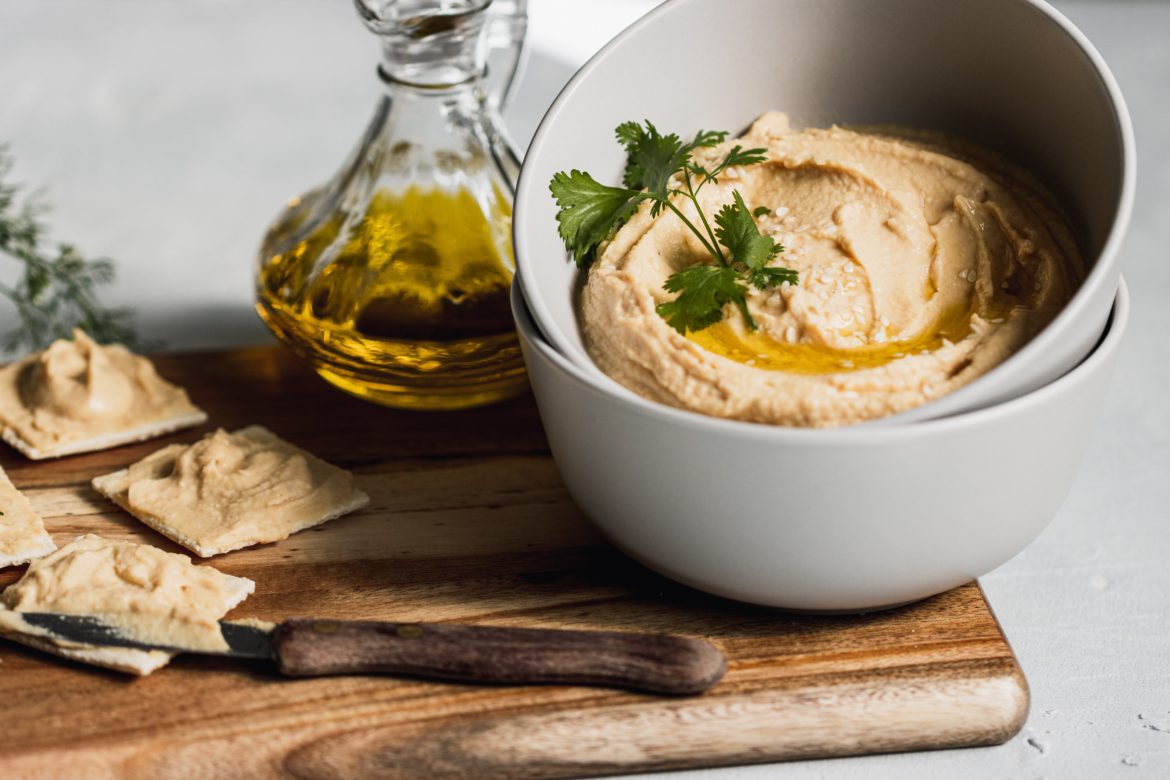Healthy Oils You Should Add to Your Diet
There is a high chance that olive oil may be the first one to pop in your head while trying to think about healthy cooking oil. Although you aren’t wrong by any means; olive is indeed very healthy.
However, when it comes to consuming oils in your diet, things are a lot more complex than just a simple answer like “olive oil is the best oil for your health.” Because if that were the case, all the other oils would have been off the shelves a long time ago.
The reason there is a variety of cooking oils available for consumption is that each oil has different qualities and properties. One oil may be great for stir-frying but won’t be the best choice for deep frying. Likewise, some oils may be suitable for sautéing, some may enhance your baking, and some are best consumed raw as salad dressings and bread dips.
With so many different oils available, it can be difficult to understand which one to consume. However, with a little research and information, it can become easier.
Healthy Cooking Oils to Consume
While there isn’t a definitive answer to ‘which cooking oil is the best?’, there are some oils that are certainly healthier than the other. Following are some of the healthiest oils you can add to your diet to
1. Extra Virgin Olive Oil
Since it has already been discussed, it is only fair to start this list with extra virgin olive oil. It is one of the most readily available cooking oils. In fact, you may already have some variety of olive oil in your kitchen cabinet. And if you are particularly health-conscious, you most likely have tried extra virgin olive oil at some point in your life. This is because extra virgin olive oil is one of the most nutritious cooking oils. It contains healthy amounts of antioxidants as well as oleic acid. It contains polyphenols, which work as anti-inflammatory agents.
Olive oil is a heat-friendly oil that is a great option for people with diabetes. It contains an antioxidant known as tyrosol, which can act as a therapeutic agent for improving insulin resistance and diabetes. It also increases the levels of HDL “good” cholesterol and helps manage blood pressure.
The only minor setback of extra virgin olive oil is that it has a 12:1 ratio of omega-6 to omega-3, which can cause an imbalance unless other sources of omega-3 fatty acids are consumed. However, the benefits of consuming olive oil far outweigh this easily fixable issue. While other types of olive oil are also beneficial, extra virgin olive is overall the best, as it hasn’t been exposed to high heat.

2. Avocado Oil
Just like the fruit, avocado oil might be the next big trend in the world of diet and health. Just like extra virgin olive oil, it is an unrefined oil. However, it has a high smoke point which makes it suitable for cooking at high heat.
It has a neutral flavor, which means that it doesn’t overpower the taste of the dish that is cooked in it. Avocado oil contains one of the highest amounts of monounsaturated fats contents compared to most other oils, while also containing significant amounts of polyunsaturated fatty acids and vitamin E. It is also anti-aging, inflammatory, anti-aging and high in an antioxidant known as lutein, which is great for the eyes.
However, the best thing about avocado oil is the fact that it is an unrefined oil with a high smoke point. This means that it is one of the most adaptable oils, and can be used any way you want. Salad dressings, drizzle over bread, roasting, stir frying, sautéing, deep frying, grilling—literally everything works with avocado oil. Perhaps the only downside of this oil is that it is significantly more expensive than other oils. But if you’re willing to splurge a little, it is certainly worth its price.
3. Macadamia Nut Oil
Another cooking oil that people are still sleeping on is macadamia nut oil. This lesser-known cooking oil is also one of the healthiest cooking oils and has some very strong benefits. It has a 1:1 ratio of omega-6 fatty acids and omega-3 fatty acids, giving it the best fat ratio for any cooking oil. It contains a higher amount of oleic acid than olive oil.
Macadamia nut oil contains a high amount of vitamins. This powerful antioxidant combats free radicals in the body and is also an essential nutrient for eye health. It also possesses tocotrienols, which may reduce the risk of some cancers.
You can use macadamia oil for almost everything from salad dressing to stir-frying. However, high-heat grilling and frying should be avoided, as it starts to burn at extreme temperatures. It has a buttery flavor that is mild and pleasant, making it an excellent addition to any dish.
Arguably, the only downside of this oil is that it is relatively expensive and can be difficult to find. If you are able to get your hands on it, then it should definitely be a part of your diet.
4. Flaxseed Oil
While it may not be the most appetizing oil you can get your hands on, flaxseed oil is actually the best when it comes to your health. Also known as linseed oil, it is a rich source of ALA – an essential omega-3 fatty acid. Getting a proper amount of omega-3 fatty acid in your diet ensures healthy weight maintenance, while also potentially reducing the risk of heart disease by reducing inflammation and promoting blood vessel health.
It is particularly beneficial for people who don’t consume a lot of fish, as they usually don’t get enough omega-3 fatty acids in their diet. Flaxseed oil can also be applied topically to fight carpal tunnel syndrome.
However, heating flaxseed oils can result in it losing all of its essential nutrients and resulting in a dish that may taste burnt or rancid. Just like most other cold pressed oils, you can use flaxseed oil as a drizzle over salads, pasta and soups.
It can also be used in place or olive or mayo when making sauces, tuna salads and pestos. It is recommended to store it in cool dark places to preserve its quality so it is best to buy smaller bottles that will get used up quickly.

5. Canola Oil
Lately, canola oil has been getting a very bad reputation in the world of cooking oils. In fact, most people believe that it is the unhealthiest oil to cook with. However, this isn’t true. The reason behind this misconception is that canola oil is most commonly used for deep-frying, and since deep-fried food is known to be unhealthy, the oil gets a bad image by association.
In reality, canola oil isn’t bad for you on its own. With a high smoking point and a neutral flavor, canola oil is one of the best oils for frying. It is chemically processed to get the high smoke point, but that doesn’t affect its health qualities of this versatile cooking oil. It is also perfect for roasting and baking. However, since it has a natural flavor, it may not be a great choice for sautéing.
6. Coconut Oil
Coconut oil is extracted from the meat of fresh coconuts and is a great source of medium-chain triglycerides (MCT) saturated fat. It is perhaps the only source of saturated fat that isn’t bad for you, as it doesn’t raise your cholesterol level.
Being an MCT, it is more likely to get used for energy as soon as it is consumed rather than stored in the body as blubber. If you’re trying to lose weight, coconut oil is one of the most effective cooking oils you can add to your diet.
Coconut oil also has a high smoke point. This makes it suitable for almost all kinds of cooking. You can use it to makes eggs, sautés, stir fries, etc. It is also more solid at room temperature as compared to other oils, making it a great substitute for butter in just about anything, including baked goods, cookies and pancakes.
If you opt for the extra-virgin kind – which is recommended for coconut oil – you can also use it as a salad dressing or drizzle over homemade baked potatoes, and can also be added to bulletproof coffee. Its tropical flavor can add a burst of flavor to almost anything.
7. Peanut Oil
Peanut oil is arguably the most flavorful oil you’ll find. So you should probably only use it if you are okay with your dish having a strong peanut flavor. However, peanut oil and other nut oils can be very fun to experiment with in the kitchen. It has a nutty smell and taste and is usually flavorful, so it can elevate the taste of your dish.
It has one of the highest amounts of monounsaturated fats. In fact, almost half of peanut oil is basically monounsaturated fats. Additionally, it contains about 11% of the daily recommendation of vitamin E. It has a relatively high smoke point along with a great flavor, which makes it ideal for stir-frying, grilling, roasting, sautéing, searing meats and frying.
8. Walnut Oil
Another oil that cannot be used in a variety of ways, but has great benefits when it comes to weight loss and overall health. Walnut oil has a rich and nutty roasted flavor and is rich in polyunsaturated fatty acids. This can help increase diet-induced calorie burn as well as the body’s resting metabolic rate (the calories that are used up to keep our heart pumping and body running even when we aren’t doing anything).
Additionally, walnuts have more omega-3 fatty acids as compared to any other nuts. Since walnut oil is always cold pressed, almost all of the nut’s original nutrient content gets delivered in it.
Walnut oil does not do well under heat. Therefore, it should not be used for cooking or baking purposes. However, its nutty flavor can b a great addition to any salad dressing. One great recipe is to mix it with olive oil, sherry vinegar, cumin, salt and pepper to make tangy and rich-tasting salad dressing. You can also take a tablespoon of walnut oil on its own on a daily basis if you are just consuming it for the health benefits. However, remember to not go overboard, as it can be fattening in excess.
Ideally, you should be adding multiple oils to your diet. A variety of oils won’t just provide you with an array of health benefits, but can also help you enjoy a variety of flavors for different purposes. So next time you’re confused in the grocery aisles, pick up two or more oils for different purposes and see how they improve your diet.
